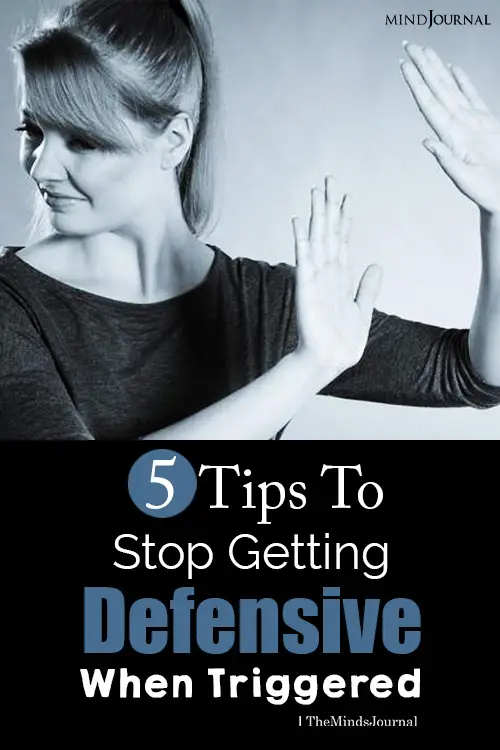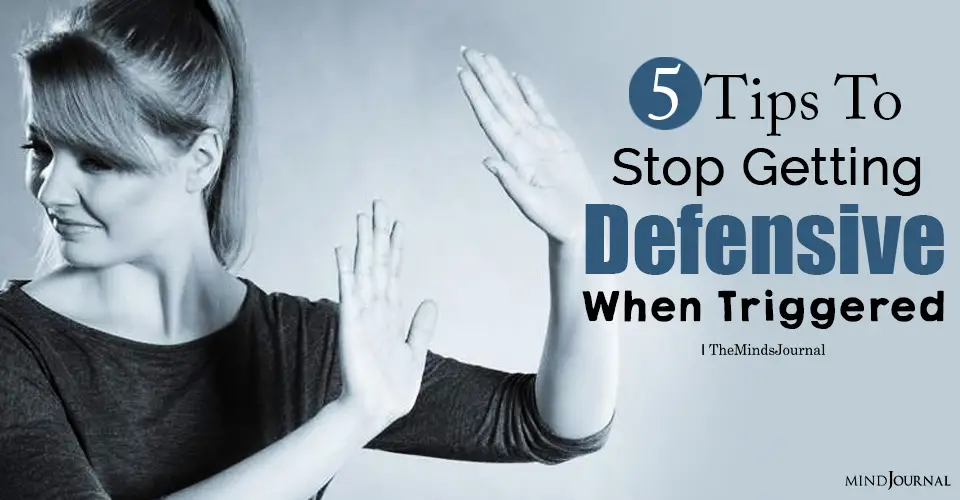Today you feel light. After a long time, you wake up in the morning with a smile on your face, ready to rock the day! Your reach your workplace feeling extremely motivated. People notice that you look extra positive like you are spreading good karmic energy! Everything is rolling smooth and BAM! Someone decides to pull your trigger! Ask yourself, do you react defensively when someone pulls your trigger?
The story flips in a second and you shower the person with mean words, shaking with anger, wishing you could kill the other person for destroying your mental peace. But where does this thought come from?
Within you.
Interestingly, every one of us is familiar with such incidents where we have reacted in ways we wished we hadn’t. You might wonder, “So? What’s wrong if I have?”
Nothing is really wrong until it makes you vulnerable to be controlled and manipulated by others, which you are highly risking yourself to.
What is the easiest choice we have when we are triggered? We simply react. We become defensive – the fastest and most feasible way to respond.
Read How to Listen Without Getting Defensive
What’s Below The Surface?
Most of us are not aware of the maladaptive way we react to a situation or stimuli in our surroundings. For us, our reaction is absolutely justified.
It wouldn’t be a surprise if, while reading this article do you realize that you often react in ways that are revealing just the tip of the iceberg, the substantial part of which we don’t get to see.
Defensiveness is the action we perform to protect ourselves from being deflated. Defensiveness, to some extent, is an ego protective measure. But here’s a back story.
The actual truth is oddly ironic: being defensive sounds to have a self-protecting, self-promoting connotation which is half of the truth.
We do not get defensive to protect ourselves from others but we get defensive to protect ourselves from our own undesirable thoughts, wishes, and desires, to not encounter something within ourselves – Fear!
Defensiveness Is Always Based On Deep-Seated Fear.
If an individual feels incompetent, incapable and insignificant, he or she is likely trying to avoid an uncomfortable thought or feeling rising from within himself. Defensiveness is crippling for an individual in several ways, the few most common ways it diminishes the effectiveness are by:
- Projection
- Distortion and
- Compensation.
Take this, for instance, If I fear that I am not efficient enough and see others be more competent, I may project this insecurity or incompetence onto other people through my actions or through acting out.
So next time when someone points out to me how I genuinely have the scope to improve, I will react defensively by thinking or often saying out loud that this person is jealous of me. “You are simply jealous of me because I am doing great at my job.”
Which may or may not be true but what I actually did was, I subconsciously compared myself with my colleague and I realized that I’m not potent enough.
Ultimately, this entire thing distorted my sense of reality and I continued to believe that other people are jealous of me and want me off the competition. These will only spread bitterness within myself, my resentment towards others will increase and I will consistently keep being triggered at the drop of a hat.
Let’s continue with the first example, suppose I am given work to do which requires my thorough expertise. Now once I have completed the work I keep complaining to other people about how poorly I have performed. What does everyone do then? Of course, everyone starts telling me, “What nonsense! You have performed excellently. This couldn’t have been better.”
Pat on my own back! I have successfully compensated for my fear of being insufficient. This little boost temporarily pacified my fear of being ‘not good enough’.
This can be very dangerous in any kind of interaction, especially intimate ones. It is sadly very draining for one partner to constantly feed the insecurity of another partner through compliments and reassurances.
By now it is clearly understandable that defensive behavior is internally instigated and NOT based on external stimuli. You have to stop believing that others are responsible for your defensive behavior or they are the ones that need to change.
Remember, one particular person might have malicious intent towards you, but not all.
Now that you know that defensive behavior stems from inside us, you have an upper hand at doing something about your defensive behavior.
Read How To Fully Release Difficult Emotions That Hold You Back
Here are 5 steps that you can take to stop yourself from reacting defensively every now and then:
1. Pause. Stop And Think.
When someone attacks us, the first thing we do is counter-attack!
This is where you have to stop. The moment you realize your system is about to blast, STOP!
Tell yourself, “I can retaliate but not before I review the entire situation in a quick span of 5 minutes.”Delay your wish to counter-attack.
And in the meantime, take a moment to calm yourself down, think what transpired and try to make sense of the situation.
Counter-attack often happens so fast that we do not get the time to logically think the situation over. So, calming oneself down in such a situation is an ultimate necessity.
2. Practice Responding, Give Up Reacting.
What’s the difference? You might ask. A reaction is typically quick, happens within a flash of a moment, is most aggressive and inappropriate. When you respond, it is well perceived and more logically thought over, and hence, it improves communication instead of messing it up.
When you react, you are overwhelmed with emotions, type a quickie and hit the send button, feeling anger spreading through your body.
And when you respond, you type, think, pause, type again but never hit the send button. You sit and ponder to revise what an appropriate response should be – free of bias and emotional loading. You see for yourself, the first and the second point is interlinked. You need to give yourself the time to respond instead of reacting.
Start from today. With time you will master the art of responding.
3. Be In Their Mental Frame.
It’s easy to react to what others say to you but the most difficult part is to be in their shoes. Maybe something that the other person said was offensive to you but that might be simply normal for that person.
Consider their habits, personal choices, cultural background, personality, and frame of mind. Go out of your box and try to perceive things from their point of view.
For once, be them, live their emotions and thoughts and you might acquire a new perspective about them. They might not seem half as mean as they currently do!
Read 4 Ways To Cope With Negative Emotions
4. Know That Other People Are Separate From You.
Everyone has distinct life experiences. We are what we have experienced in the past. None of our stories are the same.
We are all fighting our own battles that others do not know about. Who knows if the person who cursed you in public transport just projected your life frustrations or not?
Before being judgmental about someone who ill-treated, offended or triggered your emotions, know that it was born in their psyche. Not that their behavior is justified but they are accountable for it. Not you. All you can do is not allow their negativity to sip into your life.
5. Look Within Yourself.
The next time you react, ask yourself, “Where is this coming from?”
It might be some unresolved conflict, a dissonance in thought, or dysregulated emotions – whichever it is, the source of your reaction is within you.
Give yourself some time. Sit down with a pen and paper, think of an incident when you reacted defensively, and ask yourself the following questions to gain insight:
- What was the trigger?
- Was my response appropriate?
- What better ways could I have responded?
- What was I thinking when I reacted in that manner?
- Which emotions were associated with it?
- What does the reaction tell about me?
Every time you ask yourself these questions, you develop a better understanding of the underlying mechanism that leads you to react defensively. Try being aware of what is going inside you. Once you have unraveled what’s in your mind, you gain complete control over yourself. Because…
More information is always better than less. When people know the reason things are happening, even if it’s bad news, they can adjust their expectations and react accordingly. Keeping people in the dark only serves to stir negative emotions. – Simon Sinek










Leave a Reply
You must be logged in to post a comment.